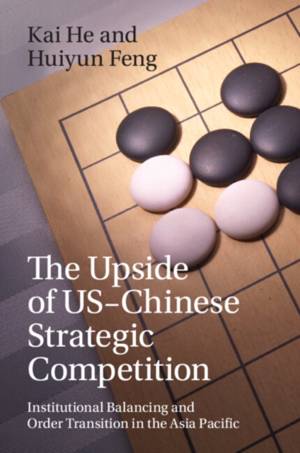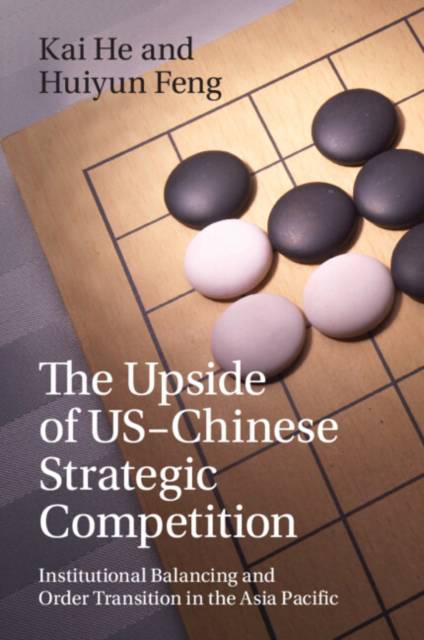
Bedankt voor het vertrouwen het afgelopen jaar! Om jou te bedanken bieden we GRATIS verzending (in België) aan op alles gedurende de hele maand januari.
- Afhalen na 1 uur in een winkel met voorraad
- In januari gratis thuislevering in België
- Ruim aanbod met 7 miljoen producten
Bedankt voor het vertrouwen het afgelopen jaar! Om jou te bedanken bieden we GRATIS verzending (in België) aan op alles gedurende de hele maand januari.
- Afhalen na 1 uur in een winkel met voorraad
- In januari gratis thuislevering in België
- Ruim aanbod met 7 miljoen producten
Zoeken
The Upside of US-Chinese Strategic Competition
Institutional Balancing and Order Transition in the Asia Pacific
Kai He, Huiyun Feng
Paperback | Engels
€ 51,95
+ 103 punten
Uitvoering
Omschrijving
US-Chinese strategic competition is a defining factor in world politics. The prevailing narrative on US-China relations predicts inevitable conflicts between these two giants, potentially leading to a self-fulfilling prophecy. While fully acknowledging the inherent dangers of potential wars or military conflicts between the two powers, this book shows that competition is not necessarily detrimental. By systematically examining US-China institutional balancing across security, economic and political domains, particularly in the aftermath of the 2008 global financial crisis, this book highlights three positive externalities or unintended consequences: the revitalisation of regional institutions to address emerging challenges, unexpected collaborations between great powers (the US and China) and regional actors, and the provision of public goods by both nations. The book argues that constructive and institutionalised competition between the US and China, if managed with strategic foresight and restraint, could inadvertently lead to positive outcomes - institutional peace - in the Asia-Pacific region.
Specificaties
Betrokkenen
- Auteur(s):
- Uitgeverij:
Inhoud
- Aantal bladzijden:
- 209
- Taal:
- Engels
Eigenschappen
- Productcode (EAN):
- 9781009584890
- Verschijningsdatum:
- 5/06/2025
- Uitvoering:
- Paperback
- Formaat:
- Trade paperback (VS)
- Afmetingen:
- 152 mm x 229 mm
- Gewicht:
- 285 g

Alleen bij Standaard Boekhandel
+ 103 punten op je klantenkaart van Standaard Boekhandel
Beoordelingen
We publiceren alleen reviews die voldoen aan de voorwaarden voor reviews. Bekijk onze voorwaarden voor reviews.









